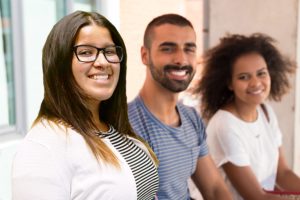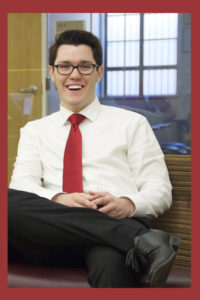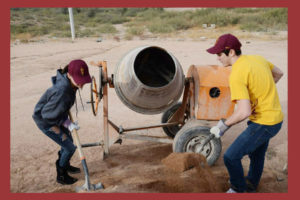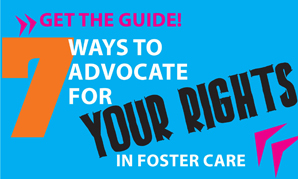As most children approach age 18, they are excited about new independence and freedoms. For youth in foster care, their 18th birthday is often a time when the services they relied on the most to survive, come to an end. For many, they lose their support system and find themselves on their own without any connections. With the correct guidance, resources, and connections, this time could be easier for youth in foster care. As a foster parent, you can help ease this transition.

I entered foster care at age 15. Like most older youth, I was first placed in a group home. Fortunately, I was moved to a foster family took after a few months and I stayed with them until was ready to transition. The group home was a difficult place for me to succeed. Due to limited staffing and the desires of the other girls, I often didn’t have time to work on my homework. I also didn’t have access to a computer which made completing many of my assignments quite challenging. This changed when I was placed with a foster family, and later gain admittance to Arizona State University. I was still 17 at the time, and my DCS caseworker was worried about me living in the dorms on my own. With help from my foster parents, I was able to get a judge to sign off on me going straight to ASU and living independently. I also decided to do extended voluntary care and joined the DCS’s Independent Living Program. where I found even more support and resources.
My story is not the norm. Most youth in foster care will not go to college. Many will end up young parents, and many others will end up homeless. I was fortunate enough to have the determination and guidance to succeed. Foster families can help provide this same guidance to the youth they care for.
The first step foster families can take is to care for older youth. Older youth are more likely to be placed in a group care setting vs. family setting. As my story demonstrates, this can be a key factor in a youth succeeding. For me, the group home interfered with my ability to study. Group home restrictions can make it difficult for youth to find jobs and succeed in other areas. Youth may also not receive the individualized guidance they would receive in a family setting.
Foster families should also be informed about the services and resources offered to young adults who have experienced care. The Independent Living Program is one example. Other resources include YATI, tuition waivers, education and training vouchers (ETV), financial literacy training and support through Opportunity Passport™, and more.
Lastly, foster families should recognize, that like a traditional family, the needs of a child do not end at 18. Foster families can continue to stay in contact and offer guidance to youth who have been in their care. My foster family keeps in touch and has invited me to come back for the holidays. While it can still be scary starting out on your own at 18, these simple gestures can help all the difference.
-Nikki, FAAZ YALB member



 During my senior year of high school I would ask myself every day “how in the world am I going to pay for college?” As a former foster child, first generation college student, and having no means to finance my education, I was never deterred from seeking a college degree. Rather, these obstacles pushed me to work even harder. I did not want my fate to be the same as some individuals around me, which resulted in me devoting time every day to applying for scholarships.
During my senior year of high school I would ask myself every day “how in the world am I going to pay for college?” As a former foster child, first generation college student, and having no means to finance my education, I was never deterred from seeking a college degree. Rather, these obstacles pushed me to work even harder. I did not want my fate to be the same as some individuals around me, which resulted in me devoting time every day to applying for scholarships.



